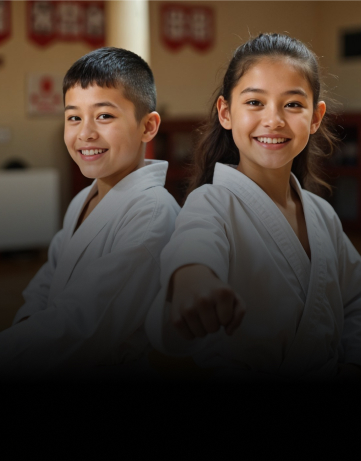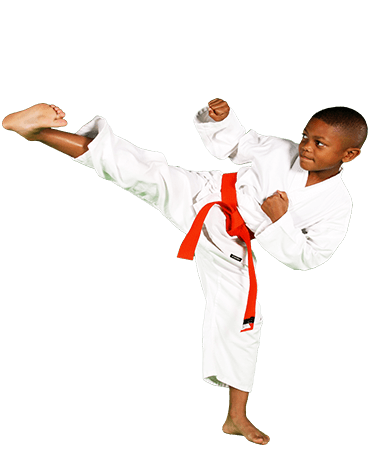Why Every Kid Needs To Attempt Martial Arts for Kids: Unleashing Possible Through Fighting Style for Children
Have you considered the impact karate could have on your child? This martial art offers greater than simply physical abilities; it grows self-confidence, discipline, and social links. Each lesson is an action towards individual growth and strength that can last a lifetime. But what particular benefits can your kid experience with karate? Let's explore exactly how this practice can nurture their potential in methods you may not expect.
The Physical Benefits of Karate for Kids
When youngsters technique martial arts, they not just find out self-defense however additionally gain numerous physical benefits. Taking part in karate assists boost coordination, adaptability, and stamina. As they kick, punch, and perform numerous positions, their muscles expand stronger and extra toned. You'll notice their endurance boosting, making everyday tasks feel much easier and more enjoyable.Karate additionally promotes cardio health. The vibrant motions elevate their heart prices, supplying a superb exercise that sustains overall fitness. And also, exercising these methods boosts balance, which can be useful in sporting activities and various other physical activities.Moreover, the discipline of karate motivates youngsters to create far better pose and body recognition. They'll find out to control their movements, which can lower the risk of injuries both in karate and in day-to-day life. All these physical benefits contribute to a much healthier and a lot more active way of living, setting a strong foundation for their future.
Structure Confidence and Self-confidence
Karate aids you face challenges head-on, revealing you that you can get over barriers with practice and assistance. As you set and achieve goals, you'll observe an increase in your confidence and self-confidence. This trip not only builds your skills however likewise transforms exactly how you see yourself.

Conquering Challenges Together
As kids face various difficulties in their karate trip, they discover to build confidence and self-worth with determination and teamwork. Working with each other with peers, they take on hard strategies and competing sessions, motivating one another to push past their limitations. These moments promote a sense of camaraderie, revealing them that they aren't alone in their battles. When a kid conquers a challenge, whether it's mastering a new move or taking part in a tournament, they acquire a sense of success that gas their self-regard. Each small triumph enhances the concept that hard job results in success. This supportive setting not only reinforces their martial arts abilities but also cultivates strength, assisting them encounter life's difficulties with newfound self-confidence.
Setting and Accomplishing Goals
Establishing and achieving goals in martial arts equips children to develop confidence and self-worth. When you set a goal, whether it's grasping a new method or gaining a belt, you're developing a clear course to success. Each small success strengthens your idea in your abilities, showing you that tough job pays off. As you educate, you'll encounter obstacles, however getting over these difficulties aids you expand stronger both physically and psychologically. Commemorating your development, regardless of just how tiny, maintains you motivated. This trip educates you strength and resolution, abilities that extend beyond the dojo. By continually setting and reaching goals, you'll promote a feeling of success that boosts your self-respect and urges you to take on new obstacles, both in martial arts and life.
Creating Technique and Emphasis
While many activities can teach kids important skills, martial arts like karate distinctively foster self-control and emphasis. With structured training sessions, you'll observe your youngster finding out the value of routine and commitment. Each course needs them to listen thoroughly, adhere to directions, and practice constantly, reinforcing their ability to focus on tasks.As they advance and gain new belts, your child experiences firsthand the incentives of effort and determination. This procedure cultivates a mindset that values persistence, educating them to press via difficulties as opposed to giving up.In martial arts, emphasis isn't almost physical activities; it has to do with psychological clearness also. Kids find out to clear interruptions and direct their energy effectively, both in and out of the dojo. This newfound discipline and emphasis can equate right into other locations of their lives, improving their academic performance and personal connections. With martial arts, your child is established on a path towards lifelong growth and success.
Enhancing Social Skills and Teamwork
In martial arts, you'll not only find out martial arts however likewise develop friendships via technique. Collaborating in classes urges team participation, assisting you link with your peers. These experiences cultivate teamwork and enhance your social skills, making karate a great means to expand both literally and socially.
Structure Relationships With Practice
As youngsters practice karate together, they naturally form bonds that expand beyond the dojo. These shared experiences foster friendships, as they urge synergy and mutual assistance throughout training sessions. When interacting on techniques or sparring, children discover to communicate efficiently and count on one another. This sociability aids them create emotional connections, making it much easier to navigate social situations both inside and outside the dojo. As they applaud each various other on during belt promotions or competitors, their relationships grow, developing visit site a sense of belonging. Martial arts not only shows technique and focus however likewise grows an encouraging atmosphere where relationships thrive. Via method, your kid will get not simply martial arts skills, however useful social skills that last a lifetime.

Encouraging Team Participation
How can team engagement in karate classes boost social abilities and teamwork? When your child methods karate with peers, they learn to communicate efficiently and interact towards typical objectives. Sparring, drills, and group exercises require collaboration and trust fund, cultivating strong bonds amongst participants.As they face challenges together, kids develop resilience and empathy, vital parts of teamwork. They'll additionally find out to celebrate each other's successes and sustain one another throughout obstacles, building a favorable atmosphere.Moreover, karate motivates respect and discipline, vital for engaging in group setups. By taking part in this fighting style, your kid not only hones physical abilities but likewise cultivates friendships, boosting their general social capability and preparing them for future collaborations in different elements of life.
Teaching Respect and Humility
While training kids karate, instilling respect and humility is just as vital as understanding strategies. In the dojo, you'll highlight the significance of acquiescing instructors and fellow trainees, developing an environment of shared respect. This method shows kids to value others, no matter their ability level, and comprehend that every person is on their very own journey.Encouraging children to acknowledge their blunders promotes humbleness, helping them discover that growth comes from embracing challenges. When they experience setbacks, advise them that willpower and a positive mindset are essential.You'll also highlight the relevance of assisting others, whether it's supplying support to a having a hard time schoolmate or revealing inspiration during practice. These lessons in regard and humility not only enhance their martial arts journey but additionally form them into kinder, more thoughtful individuals off the floor covering. By supporting these values, you're helping them grow into well-rounded, respectful participants of society.
Urging a Healthy Way Of Life
To cultivate a healthy way of living in youngsters, it is vital to integrate physical task, well balanced nourishment, and mental health right into their daily routines. Karate for youngsters uses an enjoyable way to increase their physical fitness. As they take part in courses, they'll boost flexibility, strength, and sychronisation while creating discipline.Encouraging your youngster to practice karate helps them understand the relevance of regular workout. Combining this with healthy meals will sustain their growth and power degrees. Educate them to appreciate fruits, veggies, and whole grains, producing a balanced diet regimen that gas their activities.Additionally, karate infuses a sense of regular, promoting uniformity in their lives. As they dedicate to training, they'll discover to prioritize their wellness. By making karate a component of your kid's life, you're not simply supporting their physical capacities yet additionally setting the structure for a long-lasting commitment to a healthy and balanced way of life.
Fostering Psychological Strength and Tension Relief
Martial arts not just promotes physical fitness yet likewise plays a significant duty in fostering emotional resilience and anxiety alleviation for children. When you participate in martial arts, you find out to deal with obstacles and problems, assisting you create a strong psychological fortitude. Each practice instructs you to manage your emotions, whether it's frustration from a hard strategy or enjoyment from mastering a new move.The organized environment of karate classes supplies a risk-free space to share sensations and relieve tension. You'll locate that focusing on techniques and competing can sidetrack you from day-to-day worries, allowing you to take a break. Plus, the supportive neighborhood encourages sociability and friendship, which can boost your emotional well-being.
Regularly Asked Inquiries
What Age Is Best to Begin Martial Arts for Kids?
The most effective age to begin martial arts for youngsters is usually in between 4 and six years old. At this age, they're a lot more responsive to learning, establishing control, and structure social abilities through engaging activities like martial arts.
For how long Does It Take to See Improvements?
You'll normally see enhancements in your kid's martial arts abilities within a couple of weeks view website - Best Martial Arts for Families. Regular technique, devotion, and positive reinforcement will increase their progression, aiding them get self-confidence and proficiency in fighting styles quicker than expected

Exist Any Kind Of Dangers of Injury in Karate?
Yes, there are some risks of injury in martial arts, like in any sporting activity. Nonetheless, with correct training, supervision, and safety gear, you can significantly decrease these threats while enjoying the mental and physical benefits of martial arts.
What Devices Do Children Need for Karate?
For martial arts, children typically require a gi, which is an uniform, and a belt to signify their ranking (Best Martial Arts for Families). Depending upon the dojo, they could likewise require protective equipment like gloves, shin guards, and a mouthguard
Just How Typically Should Kids Practice Martial Arts Every Week?
Kids need to practice martial arts at the very least 2 to 3 times a week. Consistent technique helps establish abilities, build self-confidence, and enhances fitness. You'll see improvement and development in their abilities with routine training sessions. When children practice martial arts, they not just learn self-defense but also gain many physical advantages. And also, exercising these techniques boosts balance, which can be beneficial in sporting activities and other physical activities.Moreover, the discipline of read karate encourages children to develop better posture and body awareness. While many activities can educate children useful abilities, martial arts like karate distinctively foster self-control and focus. Karate not just promotes physical health and fitness yet also plays a significant duty in fostering emotional durability and tension alleviation for youngsters. Youngsters must practice karate at the very least 2 to 3 times a week.